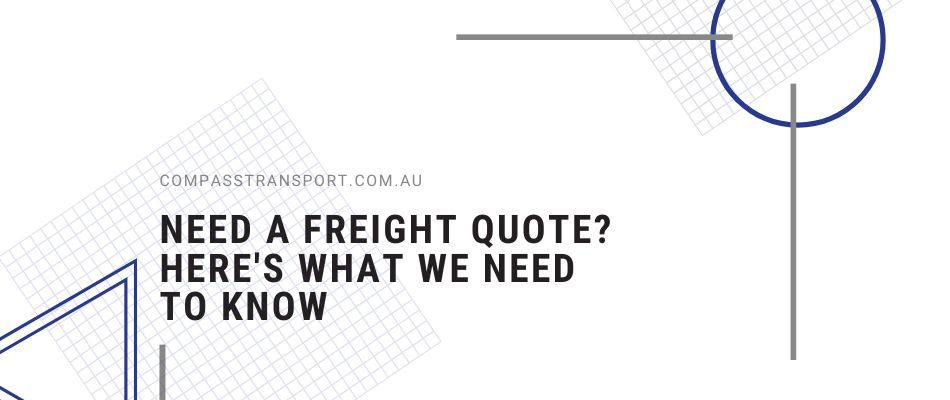
14 Mar Freight vs Courier: Which Is Right for Your Business?
There’s more than one way to transport goods from one place to another. If you’re a business owner, then you’ll have a host of options available to you. The two most commonly used shipping methods are courier shipping and freight shipping. The chances are, you’ve heard of both of these, and you might, like many, believe that they’re the same thing.
However, there are key differences that it can pay — literally — to be aware of. In this post, we’ll run through everything you need to know about freight and courier shipping, including what they are, how they differ, and how to decide which one is right for you.
What Is Courier Delivery?
Courier delivery involves the transportation of smaller items. It’s often a door-to-door service, in which the packaged item is picked up before being transported directly to its eventual destination. Couriers are particularly useful when you have a small item that has to be delivered quickly; in some instances, same-day or next-day delivery is possible.
Courier services usually include reliable tracking systems that provide frequent updates about the progress of the delivery. The downside to couriers is that they’re generally more expensive per item and you can usually only transport small items.
What Is Freight Shipping?
Freight shipping is used to transport bigger items that aren’t appropriate for courier shipping. For example, large quantities of items, heavy equipment, or oversised items. In basic terms, if the package is too large to fit into a regular-sized van, then freight shipping is more appropriate.
You can use all kinds of transportation methods for freight shipping, including ships, planes, and trucks. That makes it highly convenient since it means you can easily send large quantities of items effectively anywhere in the world.
Key Differences Between Freight and Courier Shipping
We’ve already established that freight and courier shipping are two methods for transporting goods. Now let’s take a closer look at some of the key differences between the two.
Size of Package
Courier shipping is for small packages. If it’s heavier than 70 kg or larger than 105 inches, then it’ll be considered freight shipping. Note that this applies to the overall size of the shipment, not individual items. The item you’re shipping might only be 5kg, but if there are one hundred of them in the shipment, then it’s freight.
Cost
You’ll typically pay less per item for freight shipping than you would courier shipping. Indeed, many businesses elect to use freight shipping because of its cost-effectiveness.
Courier shipping, on the other hand, is typically more expensive because there’s a higher level of personalization involved. These door-to-door shipments are handled individually, rather than as part of a larger service, and also have more detailed tracking updates.
Speed
Freight shipping takes longer than courier shipping because it’s less direct. The items might make multiple stops along the way before eventually arriving at the end destination. Some freight shipping methods are faster than others, though — for example, your goods will arrive more quickly if they travel by plane rather than ship.
Courier shipping can be extremely fast, sometimes the same or next day, though you’ll pay more for expedited delivery.
Tracking
Both courier and freight shipping provide tracking updates, but they do so with different levels of frequency. Courier shipments can have live updates that tell you exactly where the package is at any given moment. Freight shipping provides tracking updates, but tends to do so more sporadically — for example, you might get an update when it leaves the warehouse, arrives at port, and arrives at its final destination.
End Delivery Destination
Freight shipping and courier shipping also have different end destinations. Courier shipping is a door-to-door service; if you send it to a customer, then it’ll be considered delivered when it arrives at their doorstep. Freight shipping is often terminal-to-terminal, with goods arriving at a warehouse or distribution centre, though freight services also offer deliveries to other arrival points.
Freight vs Courier: How to Choose
OK, so that’s the main differences between freight and courier shipping — now the question is, how do you decide which one is right for your needs?
If it’s small and lightweight, then courier shipping will do just fine. If it’s a large shipment (more than 70 kg), then freight shipping is the way to go.
Get In Touch With Brisbane Freight Transport Today
Looking for freight shipping services? Then don’t hesitate to get in touch with Compass Transport. With more than thirty years of experience, we offer freight transport Brisbane businesses can rely on. To get started, give us a call on 0426 268 184.
